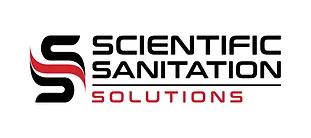North West Ambulance Service Enhances Hygiene with SANI-99™ Wipes
The Challenge
Yet, traditional disinfection practices can be time-consuming and fragmented, often requiring multiple products for different tasks. This not only slows down workflows in fast-moving emergency situations but also increases the risk of missed steps or inconsistent hygiene standards.
For NWAS, the challenge was clear: they needed a fast, reliable, and practical infection control solution that could keep pace with the urgent demands of emergency care while maintaining the highest standards of safety.
The Solution
To overcome the limitations of traditional multi-product cleaning methods, NWAS turned to SANI-99™ disinfectant wipes as a single, streamlined solution for infection control.
The Pilot & Objectives
In 2024, the North West Ambulance Service (NWAS) launched a pilot programmed to evaluate the real-world performance of SANI-99™ disinfectant wipes. The trial set out clear objectives to measure both effectiveness and practicality in frontline use:
- Effectiveness: Assess how well the wipes disinfected hands, equipment, and ambulance surfaces in demanding emergency settings.
- Ease of Use: Determine whether the wipes were convenient and practical for staff working under time-critical conditions.
- Cost Efficiency: Evaluate the potential to replace multiple cleaning products with one all-in-one solution, streamlining processes and reducing costs.
- User Safety: Ensure wipes were gentle on skin, safe for frequent use, and left no harmful residue on surfaces.
This structured approach enabled NWAS to capture detailed feedback from frontline staff and assess how SANI-99™ could enhance infection control while improving operational efficiency.

Results & Insights
Key outcomes included:
- Effective disinfection – significant reduction in microbial presence on hands, equipment, and ambulance surfaces.
- Quick-drying performance – wipes left no residue, enabling staff to disinfect and move on without delays.
- Skin-friendly formula – safe for frequent use with no irritation, encouraging better compliance with hand hygiene routines.
- Fewer products required – replaced multiple cleaning solutions with one all-in-one wipe, simplifying processes and reducing costs.
- Improved hygiene compliance – staff found the wipes easy to use, making it simpler to maintain high standards in every scenario.
Together, these results highlighted SANI-99™ as a trusted, reliable, and practical solution that not only raised infection control standards but also enhanced operational efficiency for NWAS crews.
Real-World Application
During the pilot, SANI-99™ disinfectant wipes were used across a wide range of day-to-day scenarios, proving their versatility in high-pressure emergency settings:
- Surface Cleaning in Ambulances – maintaining interior hygiene between patient transports.
- Hand Hygiene Before Patient Contact – ensuring staff had sanitized hands prior to interaction.
- Hand Hygiene After Patient Contact – reducing the risk of cross-contamination between patients.
- Equipment Disinfection – wiping down medical devices and frequently used tools to keep them safe and clean.
- High-Touch Area Cleaning – targeting door handles, control panels, seat belts, and other contact points to prevent microbial transmission.
This flexibility meant crews could rely on a single, convenient solution to meet multiple hygiene needs—saving time, simplifying routines, and ensuring consistent infection control at every stage of care.
Testimonial
— Kristoffer Fairhurst, North West Ambulance Service
